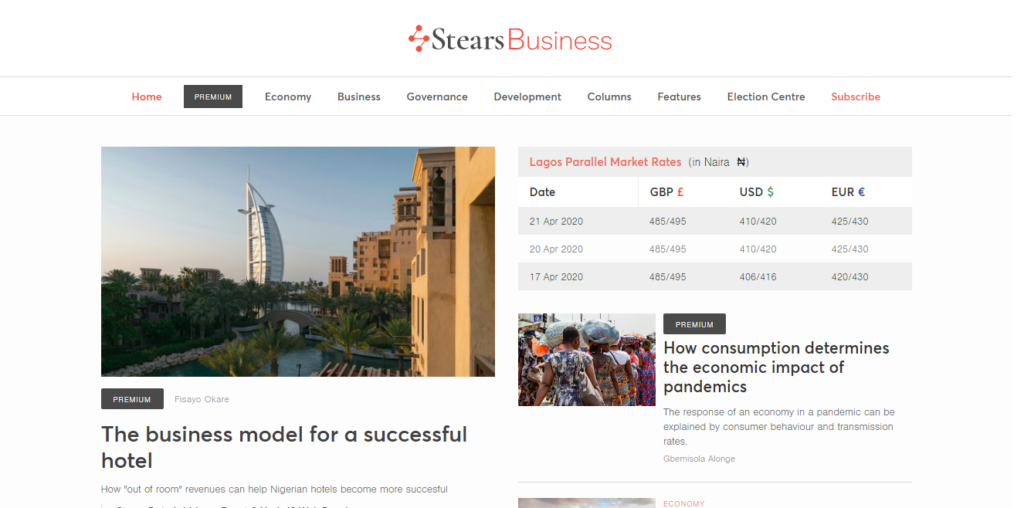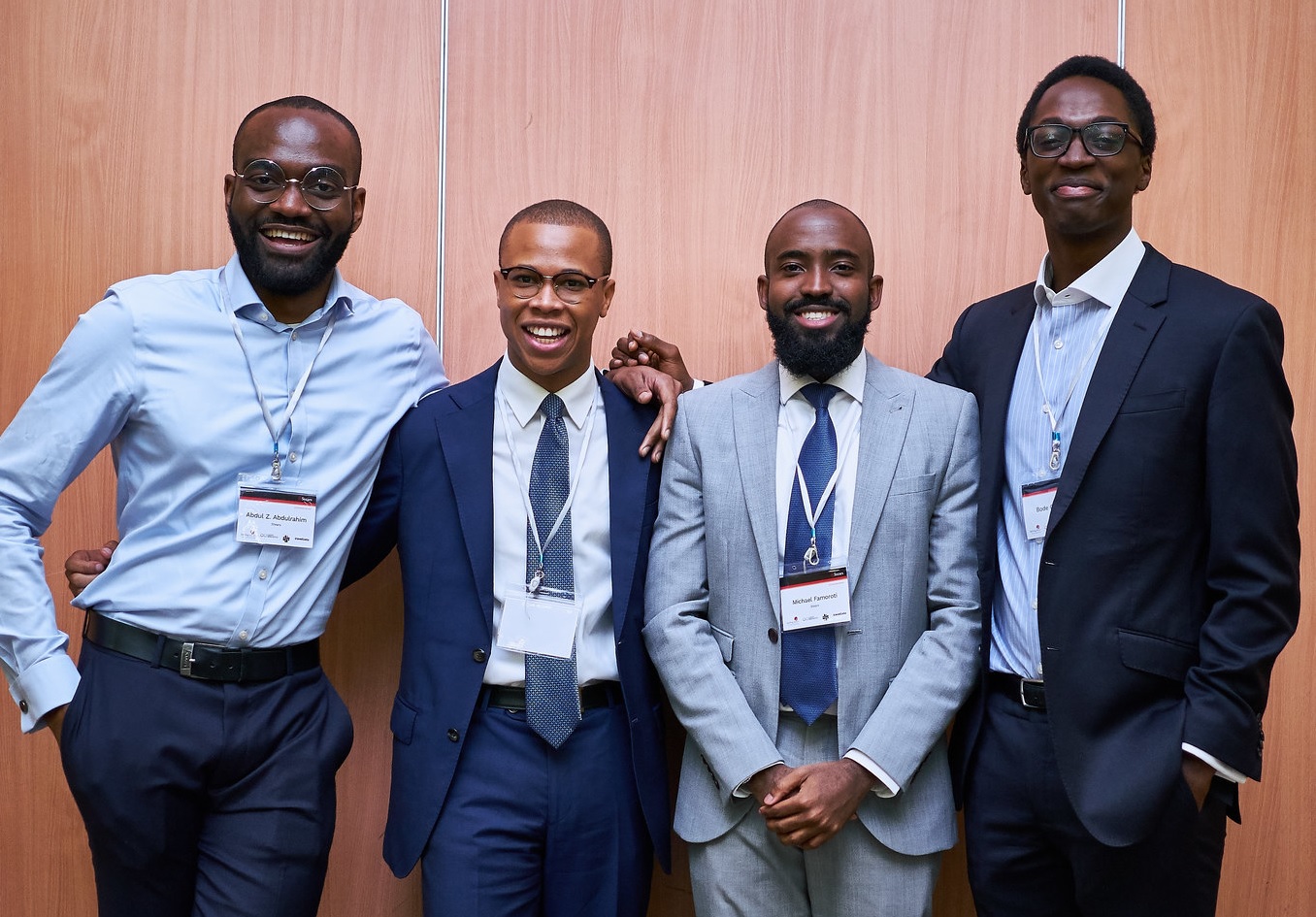Stears, the Nigerian media company that operates Stears Business, has raised $600,000 seed funding.
The funding came from undisclosed Nigerian investors with participation from Luminate, a philanthropic organisation founded by the Omidyar Group.
It will use the new funding to grow its team, collect data, and build out its media and information products.
Launched in 2017, Stears has grown gradually to become an important publication focused on data and information about the Nigerian economy.
The company was founded by Preston Ideh, Abdul Abdulrahim, Foluso Ogunlana and Michael Famoroti while they were all studying in the UK.
The idea for Stears had been a few years in the making. While they were students, the group identified that getting data about Nigeria is difficult. Also, Luminate, Stears’ latest investor, says trust in media is low in the country as many publications have extensive political affiliations.
This information dearth makes it challenging for decision-makers, businesses and ordinary Nigerians to understand developments in the country.
“We believe that the problem we are built, designed and exist to solve is the information gap,” Preston Ideh, CEO of Stears, told TechCabal. “Our mission regardless of the product or platform is always to make it easy for anyone to access high-quality information on Nigeria.”
Inspired by the information models of Bloomberg and Reuters, the four co-founders set out to solve Nigeria’s information problem.
A media platform hinged on quality articles and analysis is the best way to share information with individuals, Stears believes.
“The average reader is not interested in Excel spreadsheets,” Preston said. “They want an article; they want storytelling.”

Stears Business, Stears’ flagship publication, was created with this in mind. The platform provides analytical articles about the Nigerian economy and government policies. It also produces a long-form weekly newsletter and its number of subscribers is growing. During the 2019 elections in Nigeria, the team developed a real-time election data centre. Stears Business also developed a live COVID-19 case monitoring platform.
Preston explains that until 2018, Stears Business operated a very low-cost model. It had no full-time writer nor did it pay writers to produce articles. Instead, content was generated by its network of writers who produced articles for free. This typically included students at various universities and domain experts in areas like economics, finance and policymaking.
As Stears Business grew, “people essentially started asking us questions,” Preston notes. “[But] we didn’t want to create a small outfit to deal with a few intelligence-related issues. We wanted to play in that information space more directly.”
To achieve this, in 2019 the company launched Stears Data, its analytics and data intelligence arm. Stears Data focuses on reports, research and a few other data products. By June 2020, the company will unveil CoreData, its flagship data platform for enterprise.
Over the last few months, the company has been aggregating and structuring data including publicly available data and its proprietary data. CoreData will provide economic and demographic data on Nigeria for use by governments, development institutions and companies.
While Stears’ platform has become quite popular, the company doesn’t run adverts. Revenue comes from selling reports and rendering exclusive advisory services to clients.
This business model required a lot of work to pull off. Preston said: “[w]e knew that we had to create a publication that was so high quality and well respected with a brand that is well appreciated. [So] that when we want to start offering other services, people trust us.”
Ahead of the funding announcement, Stears hired new staff economists, data scientists and developers. After years of running lean, the company now has 17 workers, up from five in 2019. In June last year, Stears hired Fikayo Akeredolu, a former Sales Country Manager for Bloomberg Nigeria. She is currently the business development manager at the media upstart.
And in February, Stears poached Yvette Uloma Dimiri from Nigerian publisher BusinessDay to be its Growth Editor.
On its website, Luminate says Stears is “an example of a new generation of media companies that are challenging the traditional model of heavy advertising dependency and analogue newsrooms.”
“By prioritising quality, the company is also contributing to rebuilding public trust in the media in Nigeria, while simultaneously building up a cohort of talented young writers contributing to public dialogue.”















